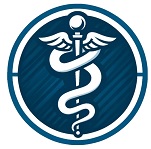Becoming a doctor is an admirable goal, but it may not be the best career option for everyone. If you’re considering making changes in your life plans, here are some alternatives to medical school that still allow you to contribute towards healthcare.
Allied health professions play a vital role in patient treatment and often have the greatest influence on patient satisfaction.
1. Nursing
Medical careers tend to entice many for similar reasons: helping others, job security and good salaries; these same benefits can also be found within nursing careers, with nurses often having more direct patient contact than doctors.
There are various nursing programs ranging from two years for an associate degree and four for a bachelor’s. Nursing can be an extremely fulfilling career path and gaining entry is much simpler than medical school admissions processes.
Medical fields are highly competitive, and the path to becoming a physician can be lengthy and challenging. Therefore, it’s wise to take your time in considering all available options before making a decision about medical school or any nontraditional programs that offer accelerated courses, early admission or don’t always require the MCAT test.
2. Biomedical Sciences
An education in biomedical sciences – which examines how cells, organs and systems function within human bodies – opens doors to an array of careers within healthcare. You could become immersed in immunology (studying immunity), cytology (which screens cervical smears), molecular pathology – working alongside scientists to discover disease causes before devising treatments – or molecular pathology, which investigates causes before developing new cures for disease.
Over time, you can advance into management roles in clinical research, quality assurance and service delivery; or move into the commercial fields such as health promotion or pharmaceutical sales. There may also be numerous postgraduate opportunities such as those related to endocrinology or molecular medicine.
Students often pursue nursing or physician assistant studies so that they can work directly with patients at the front line of healthcare service provision. It’s important to consider which aspects of medical practice appeal most strongly before making your choice.
3. Public Health
Medical school may be the ultimate goal for many pre-med students, but there are other paths in healthcare that offer similar career opportunities at lower costs and with reduced student debt.
With noncommunicable diseases on the rise and health disparities widening, it is becoming more essential for future physicians to comprehend socioecological root causes of wellness and disease. Medical schools that only focus on diagnosis or treatment lack the capacity to address such factors as biological, environmental, social, nutritional and behavioral interactions that come into play during disease processes.
Doctors need a basic knowledge of public health interventions (public education, social campaigns, ordinances and laws, standards and regulations, surveillance and preparedness). Therefore, it’s crucial that VP&S students integrate public health principles, methods, perspectives into both their preclinical curriculum as well as Major Clinical Year – this experience can shape their view of patient holistic wellbeing while increasing quality care delivered in clinic.
4. Dual Degree Programs
Dual degrees may provide post-baccalaureate students who are equally interested in two separate fields an alternative path to medical school. Such programs allow you to gain more subject knowledge while increasing the overall quality of your education, but may take more time than an MD program alone.
Dual degree programs may provide the ideal way for you to increase your understanding of how the health care system operates or pursue leadership roles within healthcare. For more insight into their advantages and disadvantages, watch this video interview from our AMA Digital Community for Medical Students expert panel.
This discussion is one of several that will take place in our members-only forum with other experts on topics ranging from career advice to student advocacy. If you would like to join this panel and submit any queries for them here.
